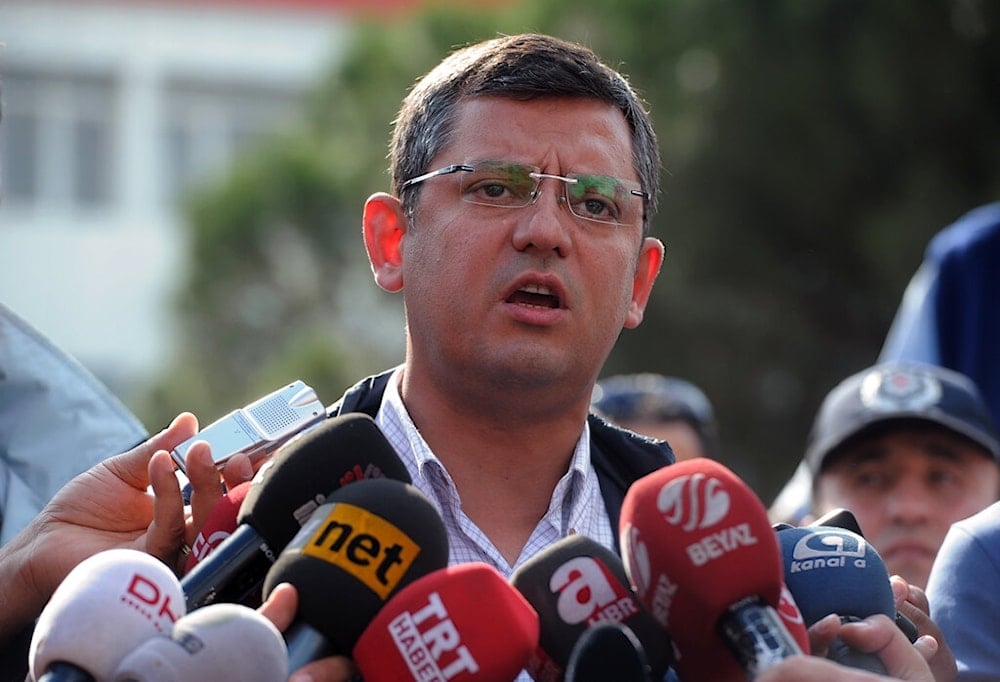Erdogan is isolating Turkey from EU, Opposition leader says
In response to the recent crackdowns on protesters, the Council of Europe has announced an urgent fact-finding mission to Turkey, citing concerns over "democratic backsliding."
-

Ozgur Ozel speaks to the media outside a local courthouse in coal miners' town of Soma, Turkey, Sunday, May 18, 2014. (AP)
The leader of Turkey's main opposition party, the Republican People's Party (CHP), has warned that President Recep Tayyip Erdogan is actively driving the country further from its European partners, both politically and diplomatically.
In a video published by Turkish broadcaster Haberturk on social media platform X, CHP chair Ozgur Ozel voiced concern over recent diplomatic cancellations tied to the growing unrest within Turkey. "I say this with regret: the visits of a number of members of the European Parliament to Turkey in April were canceled [following the arrest of Istanbul Mayor], the meetings of European officials with the Turkish Foreign Minister [Hakan Fidan] at the upcoming Antalya Diplomacy Forum were canceled. I am dismayed by this. Erdogan's policy is distancing Turkey from Europe, from the democratic league," he said.
Ozel's statement comes in the wake of the arrest of Istanbul Mayor Ekrem Imamoglu on March 19—a leading opposition figure and potential challenger to Erdogan. The government claims Imamoglu is under investigation in connection with a network accused of corruption and bribery, but his supporters have dismissed the charges as politically motivated.
The arrest has triggered nationwide protests, with demonstrators defying official bans on rallies to demand Imamoglu's release and denounce the perceived erosion of democratic rights. Dozens have been detained, and authorities have launched investigations into those calling for economic boycotts or solidarity strikes. The CHP has announced it will hold weekly protests until new elections are called.
The crackdown has also drawn international attention. The Council of Europe has announced an urgent fact-finding mission to Turkey, citing concerns over "democratic backsliding." European Union officials have criticized the mass arrests and called on Ankara to respect civil liberties and the rule of law.
Read more: EU faces dilemma between supporting and condemning Turkiye: Politico
Turkey's relations with the EU have long been troubled. Though the country signed an association agreement with the bloc's predecessor in 1963 and formally applied for membership in 1987, talks have stalled for years. Since the formal start of negotiations in 2005, only 16 of 35 accession chapters have been opened. In September 2023, Erdogan publicly stated that Turkey could walk away from its EU aspirations if necessary.
While Erdogan has at times described EU membership as a strategic priority, critics argue that ongoing political repression, limits on press freedom, and the suppression of opposition figures like Imamoglu run counter to the democratic standards required for accession.
The most recent protest saw over two million people take to the streets of Istanbul on March 29, in one of the largest demonstrations in Turkey's recent history, demanding the release of İmamoglu and calling for early elections.

 3 Min Read
3 Min Read










